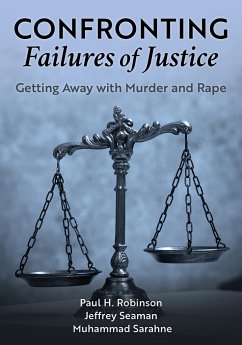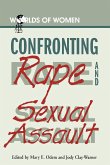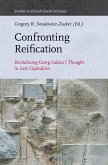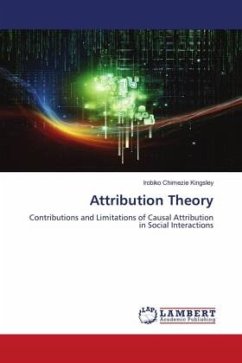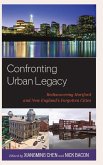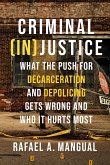Paul H Robinson, Jeffrey Seaman, Muhammad Sarahne
Confronting Failures of Justice
Getting Away with Murder and Rape
125,99 €
inkl. MwSt.
**Unverbindliche Preisempfehlung des Herstellers
Versandkostenfrei*Versandfertig in über 4 Wochen

63 °P sammeln
Paul H Robinson, Jeffrey Seaman, Muhammad Sarahne
Confronting Failures of Justice
Getting Away with Murder and Rape
- Gebundenes Buch
- Merkliste
- Auf die Merkliste
- Bewerten Bewerten
- Teilen
- Produkt teilen
- Produkterinnerung
- Produkterinnerung
No comparable volume collects in one place the various rules, doctrines, policies, and ideological positions that prevent our criminal justice system from pursuing and achieving justice.
Andere Kunden interessierten sich auch für
![Confronting Global Gender Justice Confronting Global Gender Justice]() Confronting Global Gender Justice180,99 €
Confronting Global Gender Justice180,99 €![Confronting Crime Confronting Crime]() Confronting Crime180,99 €
Confronting Crime180,99 €![Confronting Rape and Sexual Assault Confronting Rape and Sexual Assault]() Confronting Rape and Sexual Assault57,99 €
Confronting Rape and Sexual Assault57,99 €![Confronting Reification Confronting Reification]() Confronting Reification204,99 €
Confronting Reification204,99 €![Attribution Theory Attribution Theory]() Irobiko Chimezie KingsleyAttribution Theory29,99 €
Irobiko Chimezie KingsleyAttribution Theory29,99 €![Confronting Urban Legacy Confronting Urban Legacy]() Confronting Urban Legacy137,99 €
Confronting Urban Legacy137,99 €![Criminal (In)Justice Criminal (In)Justice]() Rafael A MangualCriminal (In)Justice23,99 €
Rafael A MangualCriminal (In)Justice23,99 €-
-
-
No comparable volume collects in one place the various rules, doctrines, policies, and ideological positions that prevent our criminal justice system from pursuing and achieving justice.
Hinweis: Dieser Artikel kann nur an eine deutsche Lieferadresse ausgeliefert werden.
Hinweis: Dieser Artikel kann nur an eine deutsche Lieferadresse ausgeliefert werden.
Produktdetails
- Produktdetails
- Verlag: Rowman & Littlefield Publishers
- Seitenzahl: 588
- Erscheinungstermin: 15. August 2024
- Englisch
- Abmessung: 257mm x 180mm x 33mm
- Gewicht: 1256g
- ISBN-13: 9781538191767
- ISBN-10: 1538191768
- Artikelnr.: 70061680
- Herstellerkennzeichnung
- Libri GmbH
- Europaallee 1
- 36244 Bad Hersfeld
- gpsr@libri.de
- Verlag: Rowman & Littlefield Publishers
- Seitenzahl: 588
- Erscheinungstermin: 15. August 2024
- Englisch
- Abmessung: 257mm x 180mm x 33mm
- Gewicht: 1256g
- ISBN-13: 9781538191767
- ISBN-10: 1538191768
- Artikelnr.: 70061680
- Herstellerkennzeichnung
- Libri GmbH
- Europaallee 1
- 36244 Bad Hersfeld
- gpsr@libri.de
Paul Robinson is one of the world's leading criminal law scholars. A prolific writer and lecturer, Robinson has published 20 books and articles in virtually all of the top law reviews, lectured in more than 110 cities in 34 states and 27 countries, and had his writings appear in 15 languages. He is a former federal prosecutor and counsel for the US Senate Subcommittee on Criminal Laws and Procedures. He is the author or editor of 19 books, including the standard lawyer's reference on criminal law defenses, three Oxford monographs on criminal law theory, a highly regarded criminal law treatise, and an innovative case studies course book. He has authored more than a hundred scholarly articles that have appeared in essentially every major law review and his work has been published in 15 languages. A member of the American Law Institute, Robinson is the lead editor of Criminal Law Conversations (Oxford), with contributions from more than 100 scholars around the world, and the author of Intuitions of Justice and the Utility of Desert (Oxford); Mapping American Criminal Law (Praeger, also in Chinese); Distributive Principles of Criminal Law (Oxford, also in Spanish and Chinese); and Structure and Function in Criminal Law (Oxford, Clarendon, also in Chinese). Robinson recently completed three criminal code reform projects in the U.S. and two modern Islamic penal codes, including one under the auspices of the U.N. Development Programme. He also writes popular books for general audiences, such as Would You Convict? (NYU), Law Without Justice (Oxford), Crimes That Changed Our World (Rowman & Littlefield), Shadow Vigilantes (Prometheus), and American Criminal Law (Routledge). Jeffrey Seaman is a researcher and writer on the U.S. criminal justice system. He holds a Bachelor of Arts in Philosophy, Politics, and Economics (2022) and a Master of Science in Behavioral and Decision Sciences (2023) from the University of Pennsylvania. He is committed to bringing an interdisciplinary approach to the problem of criminal justice reform to make the system more just for all. Muhammad Sarahne: S.J.D., 2020, and LL.M., 2017, University of Pennsylvania Law School; LL.B. (Law) and B.A. (Psychology), Hebrew University of Jerusalem, 2011. Sarahne is currently an attorney in the Criminal Department of the State Attorney's Office in Israel, representing the state in criminal matters before the Israeli Supreme Court. He previously worked as a prosecutor in the Economic Crime Department and was an assistant to the Israeli Deputy Attorney General (Criminal). He is an adjunct teacher at the Law School of the Hebrew University of Jerusalem and has published a number of articles in American and British law reviews.
Chapter 1: Getting Away with Murder and Rape
Part I: Criminal Liability Rules
Chapter 2: Legal Bars to Prosecution
Chapter 3: Anti-Justice Distributive Principles
Part II: Limitations on Criminal Investigation
Chapter 4: Investigative Errors
Chapter 5: Inadequate Financing
Chapter 6: Legal Limitations on Police Investigation
Chapter 7: Restraints on Use of Technology
Part III: Criminal Justice Adjudication Procedures
Chapter 8: Excluding Reliable and Probative Evidence
Chapter 9: Pretrial Procedures
Chapter 10: Plea Bargaining
Chapter 11: Unchecked Judicial Sentencing Discretion
Chapter 12: Early Release on Parole and Compassionate Release
Chapter 13: Executive Clemency and Pardon
Part IV: Social and Political Influences
Chapter 14: Citizen Non-Cooperation
Chapter 15: Police Non-Intervention
Chapter 16: Anti-Justice Ideological Movements
Chapter 17: Insights, Patterns & Reform Priorities
Appendix: Discussion Issues
Bibliography
Index
About the Authors
Part I: Criminal Liability Rules
Chapter 2: Legal Bars to Prosecution
Chapter 3: Anti-Justice Distributive Principles
Part II: Limitations on Criminal Investigation
Chapter 4: Investigative Errors
Chapter 5: Inadequate Financing
Chapter 6: Legal Limitations on Police Investigation
Chapter 7: Restraints on Use of Technology
Part III: Criminal Justice Adjudication Procedures
Chapter 8: Excluding Reliable and Probative Evidence
Chapter 9: Pretrial Procedures
Chapter 10: Plea Bargaining
Chapter 11: Unchecked Judicial Sentencing Discretion
Chapter 12: Early Release on Parole and Compassionate Release
Chapter 13: Executive Clemency and Pardon
Part IV: Social and Political Influences
Chapter 14: Citizen Non-Cooperation
Chapter 15: Police Non-Intervention
Chapter 16: Anti-Justice Ideological Movements
Chapter 17: Insights, Patterns & Reform Priorities
Appendix: Discussion Issues
Bibliography
Index
About the Authors
Chapter 1: Getting Away with Murder and Rape
Part I: Criminal Liability Rules
Chapter 2: Legal Bars to Prosecution
Chapter 3: Anti-Justice Distributive Principles
Part II: Limitations on Criminal Investigation
Chapter 4: Investigative Errors
Chapter 5: Inadequate Financing
Chapter 6: Legal Limitations on Police Investigation
Chapter 7: Restraints on Use of Technology
Part III: Criminal Justice Adjudication Procedures
Chapter 8: Excluding Reliable and Probative Evidence
Chapter 9: Pretrial Procedures
Chapter 10: Plea Bargaining
Chapter 11: Unchecked Judicial Sentencing Discretion
Chapter 12: Early Release on Parole and Compassionate Release
Chapter 13: Executive Clemency and Pardon
Part IV: Social and Political Influences
Chapter 14: Citizen Non-Cooperation
Chapter 15: Police Non-Intervention
Chapter 16: Anti-Justice Ideological Movements
Chapter 17: Insights, Patterns & Reform Priorities
Appendix: Discussion Issues
Bibliography
Index
About the Authors
Part I: Criminal Liability Rules
Chapter 2: Legal Bars to Prosecution
Chapter 3: Anti-Justice Distributive Principles
Part II: Limitations on Criminal Investigation
Chapter 4: Investigative Errors
Chapter 5: Inadequate Financing
Chapter 6: Legal Limitations on Police Investigation
Chapter 7: Restraints on Use of Technology
Part III: Criminal Justice Adjudication Procedures
Chapter 8: Excluding Reliable and Probative Evidence
Chapter 9: Pretrial Procedures
Chapter 10: Plea Bargaining
Chapter 11: Unchecked Judicial Sentencing Discretion
Chapter 12: Early Release on Parole and Compassionate Release
Chapter 13: Executive Clemency and Pardon
Part IV: Social and Political Influences
Chapter 14: Citizen Non-Cooperation
Chapter 15: Police Non-Intervention
Chapter 16: Anti-Justice Ideological Movements
Chapter 17: Insights, Patterns & Reform Priorities
Appendix: Discussion Issues
Bibliography
Index
About the Authors
